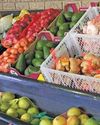
South Africa’s agricultural landscape is as diverse as its cultures, and among the many agricultural crops is sorghum. Sorghum, a versatile cereal grain, has deep roots in the country’s agricultural heritage, playing a crucial role in both economic and cultural aspects. Sorghum offers numerous advantages: it is a gluten-free, non-GMO (genetically modified organism), nutritious cereal that is packed with dietary fibre, which aids digestion and promotes a healthy diet.
Sorghum is also beneficial for preventing allergies, managing obesity, and providing sustained energy. Apart from the food-based benefits, sorghum can also be processed to brew a product, enjoyed by many South Africans, in the form of sorghum beer. This crop’s resistance to climate change, ability to withstand drought, heat, and waterlogging from erratic rainfall, make it an excellent alternative to maize. It is the world’s fifth most important grain, after wheat, maize, rice, and barley.
SORGHUM AS A TRADITIONAL CROP
Sorghum, scientifically known as sorghum bicolour, is one of the oldest cultivated grains in the world. In South Africa, its cultivation dates back centuries, with historical evidence suggesting its prominence in the diet and cultural practices of various communities. Over time, the sorghum industry has evolved, adapting to changing agricultural practices and market demands. Traditionally, sorghum was primarily grown for subsistence farming, providing a staple food source for many South African households. However, with advancements in agricultural techniques and the recognition of sorghum’s potential, the industry has expanded beyond traditional boundaries.
This story is from the {{IssueName}} edition of {{MagazineName}}.
Start your 7-day Magzter GOLD free trial to access thousands of curated premium stories, and 9,000+ magazines and newspapers.
Already a subscriber ? Sign In
This story is from the {{IssueName}} edition of {{MagazineName}}.
Start your 7-day Magzter GOLD free trial to access thousands of curated premium stories, and 9,000+ magazines and newspapers.
Already a subscriber? Sign In

Agripreneur wins top award for butternut coffee
Bloemfontein-based agripreneur Chantelle de Bruyn has achieved global recognition.

Final fresh produce inquiry pins low level of transformation on farming environment
The Competition Commission released its final report on the Fresh Produce Market Inquiry in mid-January, maintaining that transformation in the industry was being impeded by a lack of support for emerging farmers.

Illegal fishing in Australia reveals market gap for farmed sea cucumber
Illegal fishing practices in Australia have revealed a large market opportunity for sea cucumber farming.

An introduction to the Ford Ranger Tremor
In December 2024, the CAR magazine team received the Ford Ranger Tremor to accompany them through the festive season and into the new year. Oliver Keohane looks at what the Tremor is all about.

A farmer's experience with bush encroachment
Farmer David Addenbrooke has worked in the Zimbabwean beef industry for around four decades. Here, he relates his experience with bush encroachment and offers farmers some advice on battling this scourge.

Good rains boost SA's summer grain crop prospects
This week, Absa AgriBusiness analyses several market dynamics and shares its expectations for local grain and oilseed prices over the coming months.

A self-help tool for getting young people engaged in agriculture
The active engagement of the youth in agriculture is pivotal to the sustainability and growth of the sector. Empowering them with the necessary support is key to nurturing future farmers who are equipped to overcome future challenges like the effects of climate change.Dr Primrose Madende, researcher at the Department of Agricultural Economics at the University of the Free State

Rallying to the cackle of this raucous bird
The gregarious and territorial Green Wood-hoopoe, also known as the Red-billed Wood-hoopoe, is extremely vocal and is often heard before it is seen. And for very good reason,

SA coffee lovers can expect price increase
South African coffee prices are expected to spike sharply in the foreseeable future because of failed crops in the country’s main importing countries: Brazil and Vietnam.

Paving the way for a greener dairy industry
The dairy industry is often criticised for its environmental impact, but a new innovation called DESTiny aims to empower farmers to take control of their carbon footprints. Riana Reinecke, the tool's developer, explained to Glenneis Kriel how it works and how farmers can benefit from it.